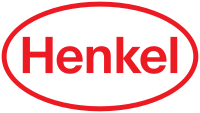
The electronic file in the global legal organization
Dr. Michael J. Schmitt, Senior Corporate Counsel at Henkel AG & Co. KGaA
Published in: DiALOG - THE MAGAZINE FOR ENTERPRISE INFORMATION MANAGEMENT | MARCH 2017.
Contracts and important documents have been stored electronically for a long time. Since 2007 a Legal Contract Management System ("LCM System") has been used for this purpose. This is a web-based, globally available database to which the members of the Legal department and other employees of the Henkel Group have access according to a defined authorization system. The database is currently used by around 2,600 users. The advantages of such a system are obvious: contracts are available at any time from anywhere in the world. There is no need to search for, scan and send the original contracts. Reminders sent automatically by e-mail provide information about cancellation deadlines. Contract managers can be easily identified and contacted in case of questions. Relationships between contracts can be noted. Evaluations of the type "Which contracts exist with supplier X or customer Y?" are possible. All these advantages can only be realized if the essential contracts are recorded consistently and completely. can be realized. A small "admin team" based in the legal department provides administrative and technical support.

Our positive experience with contract management has encouraged us to develop an electronic alternative for file management, which has been in use in Düsseldorf since April 2015. Until then, file management had been predominantly in paper form. The advantages of paper are undeniable: paper files can be read without technical support equipment and are available in a specific location for the long term; handwritten notes on documents can be created quickly. However, paper filing also has its limits. One is the sheer mass of documents. In Düsseldorf alone, an estimated 20,000 files with around 290,000 sheets of paper are produced each year. This corresponds to around 1.7 shelf kilometers per year. So we are talking about paper and printing costs as well as archive space. But it is also a question of administrative costs. In addition, the advantages of electronic filing (e.g., worldwide access, avoidance of duplicate filing, collaboration in a common file) cannot be realized with a paper-only filing system, even though the use of e-mail & Co. means that the vast majority of communication already takes place electronically.
The use of an e-mail program and a shared drive as a "quasi e-file" is not sufficient. They do not meet the requirements of proper file management. For example, transferring an e-mail account to a new person in charge is hardly technically feasible with reasonable effort. Documents can be stored on drives, but without any additional information or function. A file context cannot be created in this way. In addition, the legal department would be dependent on the archiving policy of the IT department. The data is thus not permanently in the hands of the legal department. The goal was therefore a "real" electronic file that combines all the functions of the paper file with the advantages of the electronic file.
After evaluating various solutions, the decision was made in favor of an integrated approach. No new software was introduced, but the contract management system was extended by an e-file module. Existing interfaces to the company database or the internal address book could continue to be used. The linking of e-files and contracts was possible within the application. Users also benefited because they could continue to work in the same interface, but now with the additional e-file function. There was no need to get used to or learn how to use new software. Extensive additional functions facilitate work, e.g. searching in the file using search terms, full text search in the filed documents, a preview function, automatic reminders and much more.
The flood of paper can only be reduced if, in addition to filing in the database, processes can also be largely processed on the screen. Even longer texts can be presented in a reader-friendly way on the screen, for example, by using reading views, displaying them in several windows, using bookmarks, search functions and changing the font size. A second screen is also helpful, as it expands the work area and makes it easier to view several documents simultaneously, for example. Another gain in effectiveness: to the extent that legal colleagues are willing to do their own filing in the electronic file (without significant additional effort), resources are freed up at assistant level for more demanding activities.
Now that the introduction phase in Düsseldorf has been a success, preparations are underway for the gradual worldwide rollout. The Goethe quote "What you own in black and white, you can confidently take home" can probably be supplemented in 2017: "What you store in the electronic file, you own everywhere".
www.henkel.com
